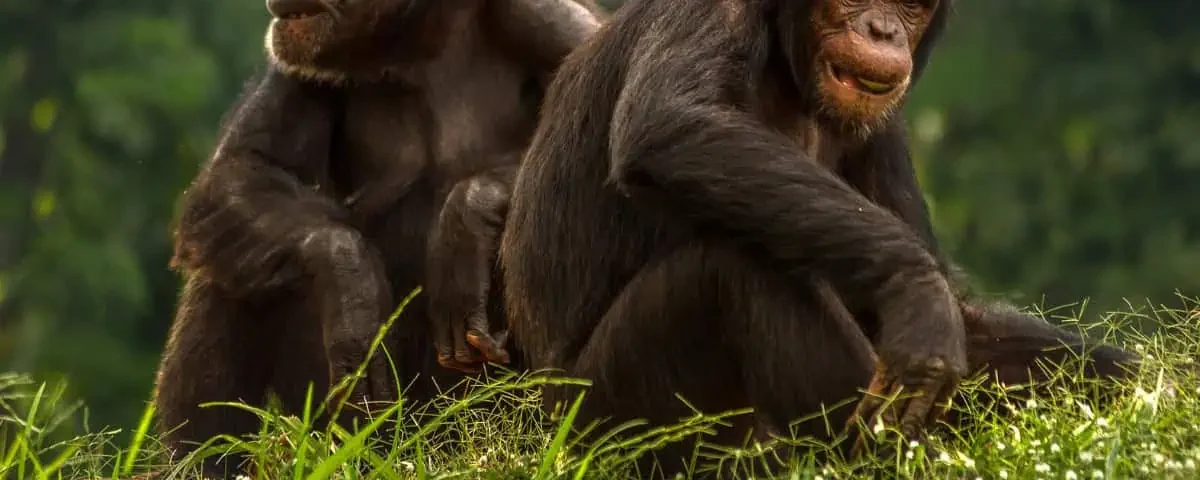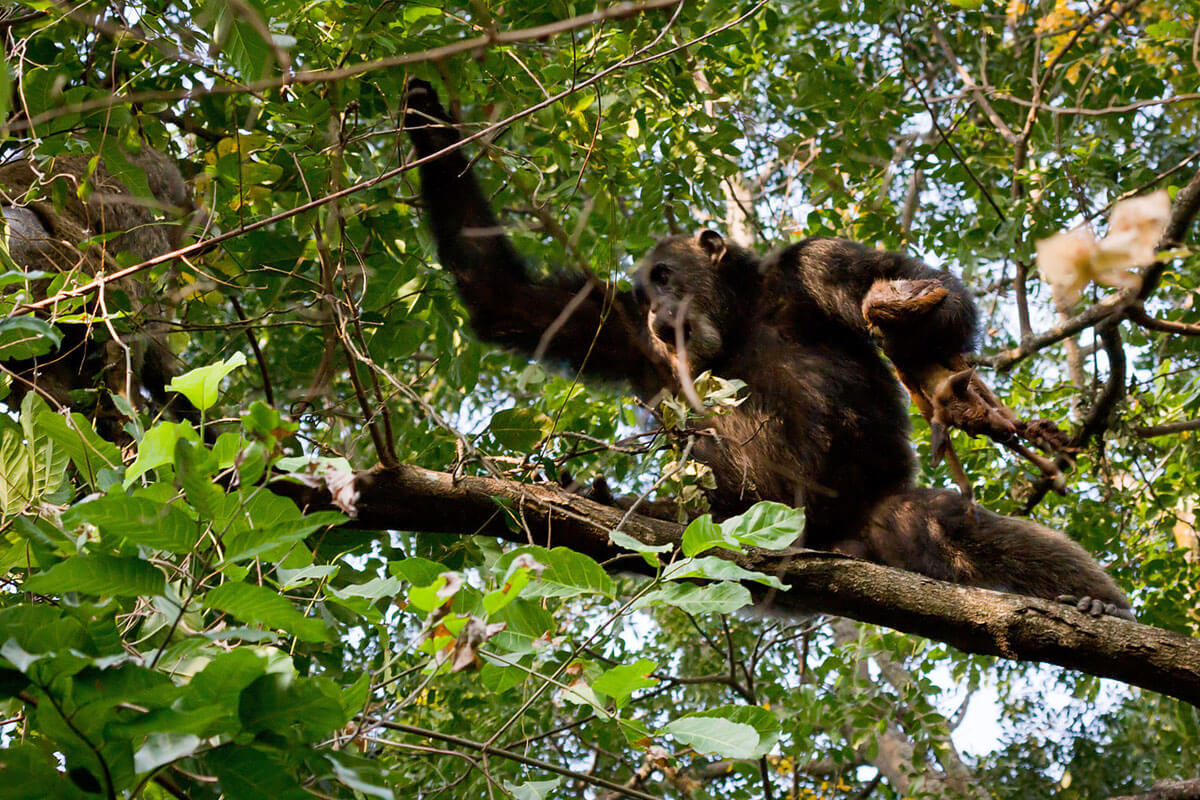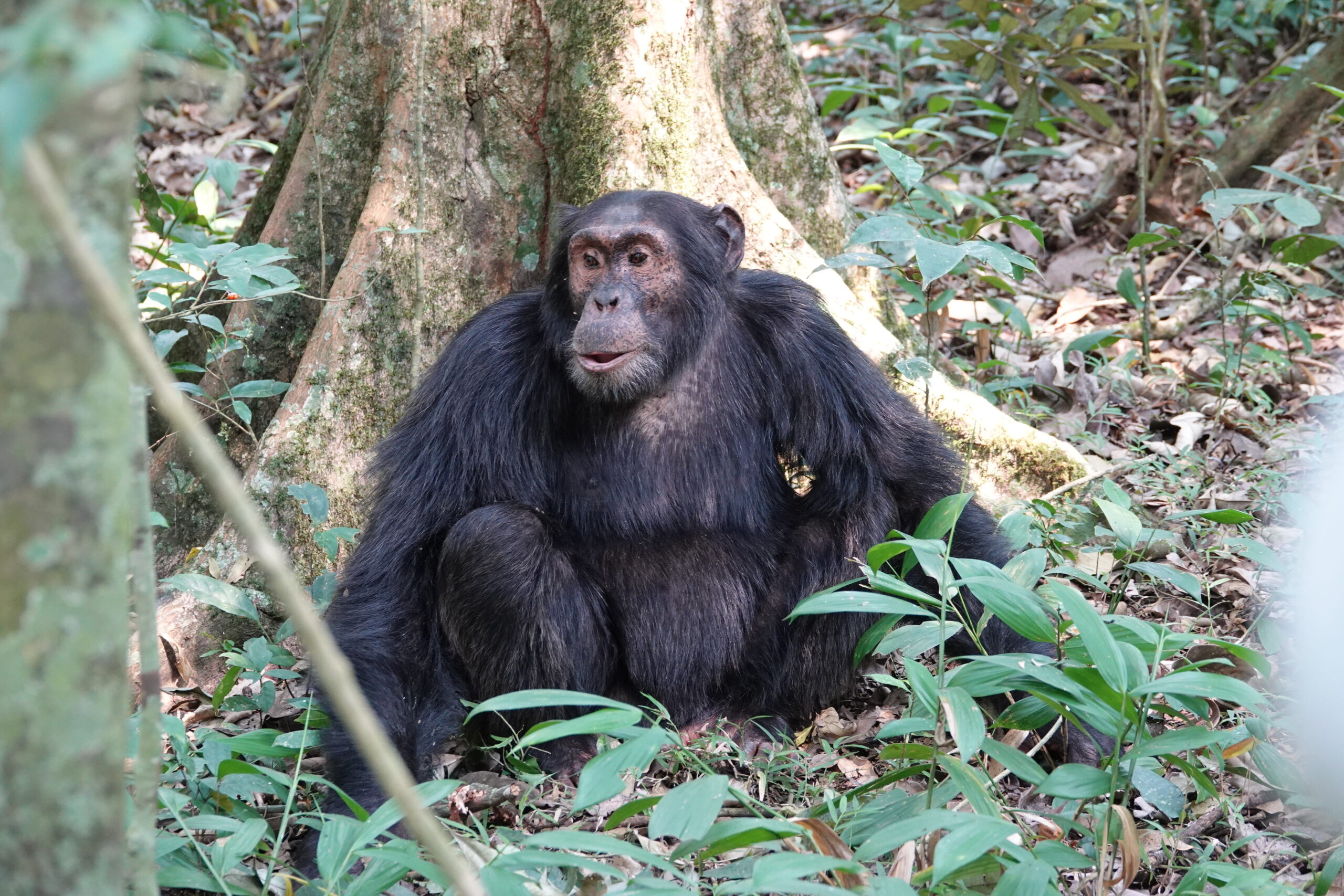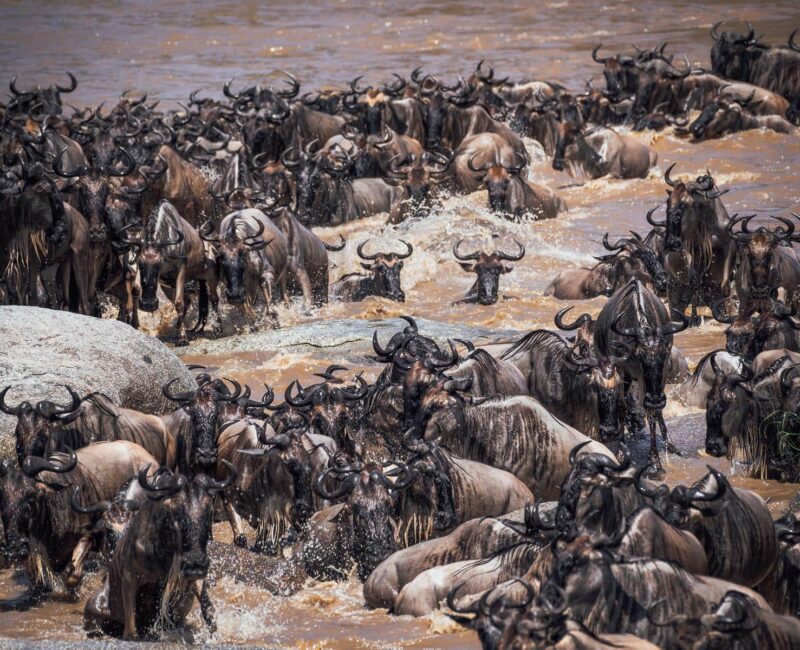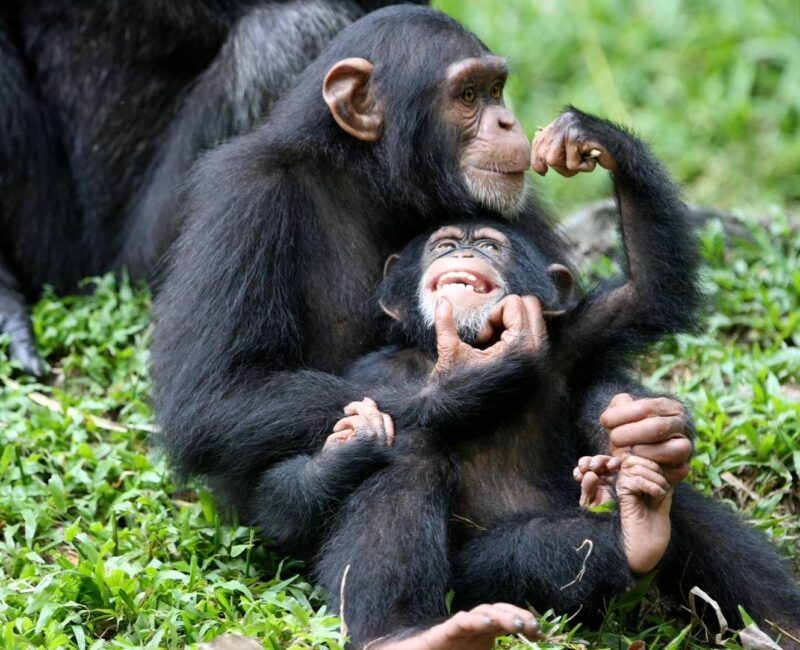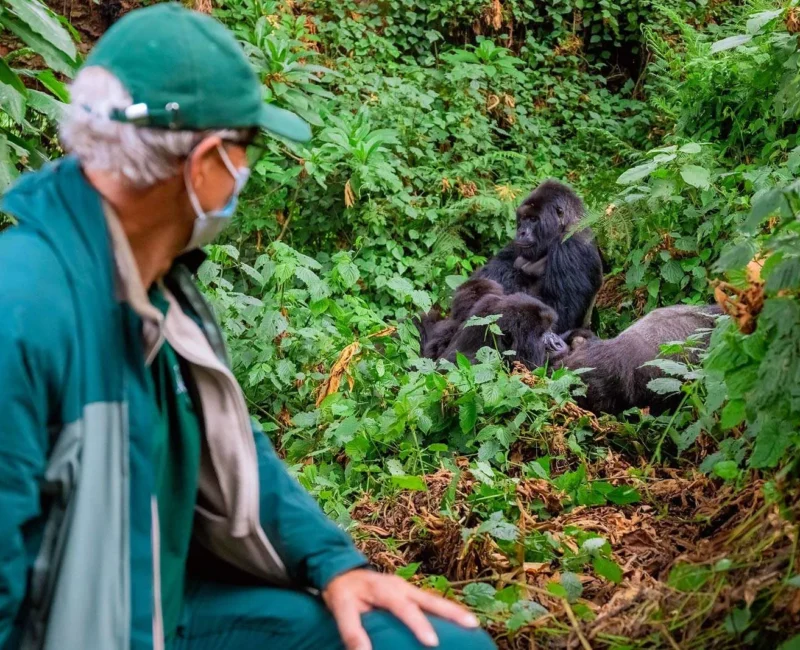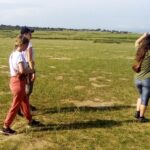
What Makes a Walking Safari Different from a Game Drive in Uganda?
October 14, 2025What Kind of Terrain Should I Expect During Chimpanzee Tracking?
October 14, 2025What Is the Difference Between Chimpanzee Tracking and Chimpanzee Habituation?
What is the difference between chimpanzee tracking and chimpanzee habituation, and why does it matter for Uganda Safaris enthusiasts? Uganda is one of Africa’s top destinations for primate tourism, offering travelers a rare chance to observe chimpanzees in their natural habitats. These encounters are conducted through carefully regulated programs known as chimpanzee tracking and chimpanzee habituation. While both activities provide intimate glimpses into the lives of these intelligent primates, they differ significantly in purpose, experience, and duration.
Introduction: Exploring Uganda’s Primate Adventures
EcoQuest Safaris specializes in designing immersive Uganda Chimpanzee Safaris and Uganda Wildlife Safaris that cater to both first-time visitors and seasoned wildlife explorers. By understanding the distinction between tracking and habituation, travelers can make informed choices, ensuring safe, responsible, and enriching experiences. Chimpanzee tracking involves following already habituated groups in Kibale Forest or Budongo Forest, allowing visitors to observe them for a limited period. In contrast, chimpanzee habituation is a more extensive and hands-on process, enabling researchers and specially trained tourists to gradually integrate wild chimpanzees into human observation over several months or years.
The experience of either activity can be combined with other Uganda Safaris highlights, such as Uganda Gorilla Trekking Safaris, Uganda Birding Safaris, or Uganda Cultural Safaris. This multi-dimensional approach allows travelers to appreciate Uganda’s biodiversity, cultural richness, and conservation efforts all in one itinerary. Understanding these differences ensures travelers choose the experience that best aligns with their interests, physical capacity, and adventure goals.
What Is Chimpanzee Tracking in Uganda?
What is the difference between chimpanzee tracking and chimpanzee habituation, and how does chimpanzee tracking work? Chimpanzee tracking is the most common form of primate tourism in Uganda and is a central activity in Uganda Chimpanzee Safaris. It involves guided excursions into forests where chimpanzees are already accustomed to human presence. These groups are typically found in Kibale Forest National Park, Budongo Forest Reserve, or Ngogo Forest, where habituated chimpanzees are familiar with researchers and guides.
During tracking, guests embark on a forest trek with professional EcoQuest Safaris guides who are trained to locate chimpanzee troops using ecological cues such as vocalizations, nests, and feeding signs. Can visitors see the chimpanzees up close? Yes — trekkers usually spend one hour observing the primates, maintaining a safe distance to minimize stress on the animals. This experience offers travelers a rich understanding of chimpanzee behavior, social structures, and communication while providing memorable wildlife photography opportunities.
Chimpanzee tracking also allows for integration with Uganda Birding Safaris, as forests like Kibale host over 300 bird species, making it one of Uganda’s most biodiverse habitats. Travelers can also incorporate Uganda Cultural Safaris, visiting nearby communities to learn about traditional forest use, local conservation efforts, and cultural practices tied to the forest. Importantly, tracking is ideal for travelers seeking a structured, time-efficient, and safe primate encounter, making it one of Uganda Best Safaris experiences.
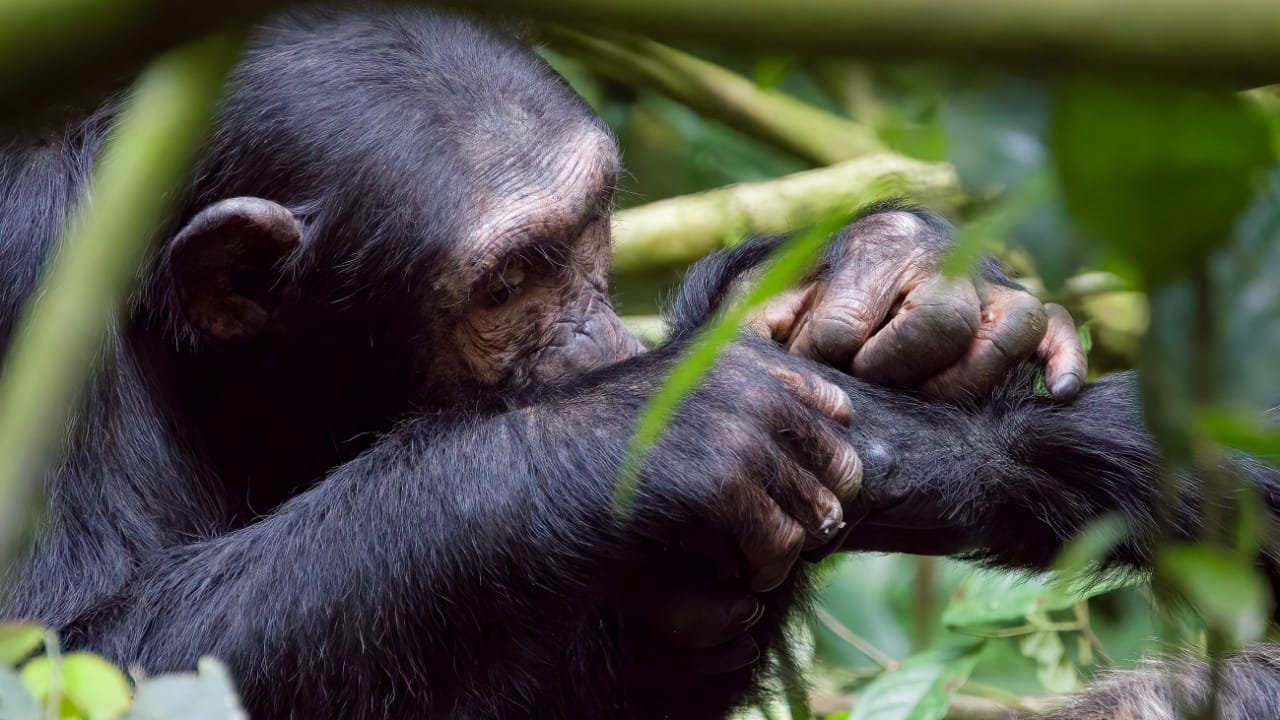 What Is Chimpanzee Habituation?
What Is Chimpanzee Habituation?
How does chimpanzee habituation differ from tracking, and why is it considered a more intensive experience? Chimpanzee habituation involves gradually acclimating wild chimpanzees to human presence over an extended period. Unlike tracking, habituation is primarily research-driven and designed to minimize the impact of humans on chimpanzee behavior. Researchers, conservationists, and a few specialized tourists spend months or even years gaining the trust of a chimpanzee troop, allowing prolonged observation without altering their natural behavior.
During habituation, participants may witness intimate social behaviors, complex communication, grooming rituals, and hunting strategies that are rarely seen during standard tracking tours. Can habituation be combined with Uganda Wildlife Safaris? Yes, though habituation is often location-specific and conducted under strict research protocols. It provides deep educational insights into chimpanzee ecology and behavior while supporting conservation programs. Unlike tracking, habituation may require longer stays, physical stamina, and a high level of commitment.
Cultural integration is also possible during habituation programs. Visitors can engage with local communities involved in conservation, participate in awareness workshops, and learn how these efforts protect forests that are vital for both chimpanzees and human livelihoods. Combining habituation with Uganda Gorilla Trekking Safaris offers travelers an exceptional Uganda Best Safaris experience, creating a journey that spans multiple primate habitats and ecosystems while emphasizing ethical wildlife observation.
Why Choose Chimpanzee Tracking for Your Uganda Safari?
What is the difference between chimpanzee tracking and chimpanzee habituation, and why might travelers prefer tracking? Chimpanzee tracking is ideal for travelers seeking a balance of adventure, accessibility, and safety. It allows tourists to witness chimpanzee behavior in a limited time frame without requiring prolonged stays in remote forest camps. EcoQuest Safaris ensures that all tracking experiences are conducted with highly trained guides, safety protocols, and minimal environmental impact.
Tracking is suitable for families, photographers, and first-time Uganda Safari visitors. Can it be combined with other activities? Absolutely — Uganda Gorilla Trekking Safaris, Uganda Birding Safaris, and Uganda Cultural Safaris can all be integrated into the same itinerary. For example, guests can spend a morning tracking chimpanzees in Kibale Forest, followed by an afternoon cultural visit to local Batwa communities, gaining insights into traditional forest use and conservation practices.
Additionally, tracking permits are simpler to obtain than habituation participation, making it a more practical option for many travelers. It is an excellent way to experience Uganda Wildlife Safaris while also enjoying the richness of primate-focused adventures. This structured yet immersive approach makes tracking a cornerstone activity in Uganda’s tourism offerings, positioning it as a top choice for travelers seeking Uganda Best Safaris experiences.
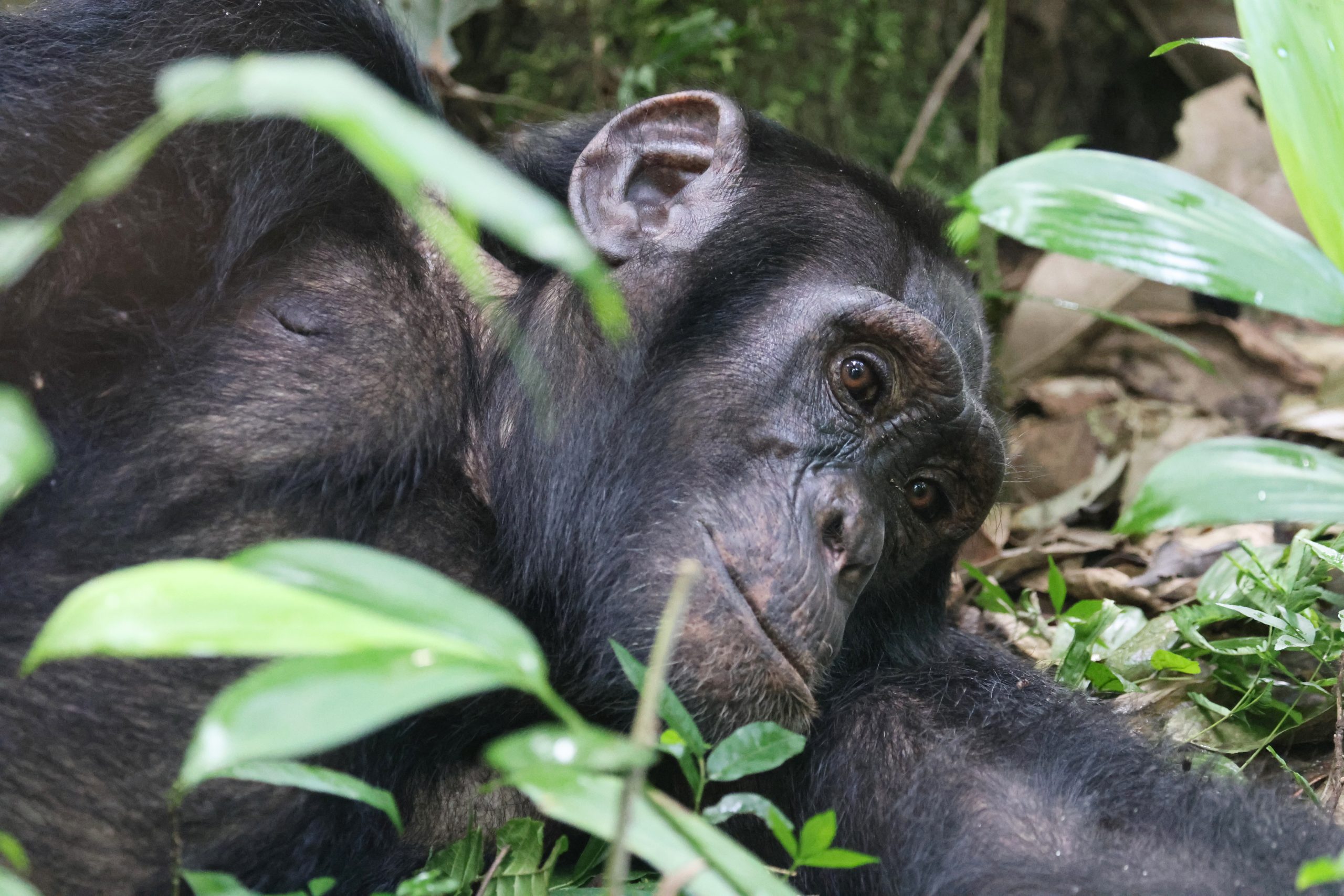 When Is Chimpanzee Habituation Most Rewarding?
When Is Chimpanzee Habituation Most Rewarding?
When is chimpanzee habituation most rewarding, and who should participate? Habituation is best suited for conservation enthusiasts, researchers, and travelers seeking an in-depth primate experience. Unlike tracking, habituation requires patience, flexibility, and often multiple days in the field, allowing participants to observe behaviors that are hidden from short-term visitors.
Can habituation be combined with other Uganda Safaris? Yes. Guests can alternate days in the forest observing chimpanzees with Uganda Gorilla Trekking Safaris in Bwindi or Mgahinga. Combining these experiences offers a holistic wildlife adventure, capturing both forest primates and Uganda’s world-famous mountain gorillas. Moreover, habituation provides unique photography opportunities, as participants gain access to natural chimpanzee behaviors without disturbing the troop.
Cultural engagement also enhances habituation programs. Local communities play a vital role in supporting conservation, and travelers often participate in educational workshops, community development projects, and cultural exchanges. By integrating Uganda Cultural Safaris with habituation experiences, EcoQuest Safaris ensures that travelers leave with a comprehensive understanding of both wildlife and human dimensions of forest conservation.
How to Decide Between Tracking and Habituation?
How can travelers determine which experience to choose when planning Uganda Chimpanzee Safaris? The answer depends on time, interest, physical ability, and the level of immersion desired. Tracking is ideal for those who want a structured, accessible, and time-efficient experience. Habituation, on the other hand, suits travelers seeking a more immersive, long-term engagement with wild chimpanzees.
EcoQuest Safaris provides expert guidance on selecting the most suitable experience. Can I combine these experiences with Uganda Gorilla Trekking Safaris? Absolutely. A multi-primate itinerary allows travelers to observe chimpanzees and gorillas within a single journey, blending walking safaris, primate trekking, and cultural visits. This approach not only maximizes wildlife encounters but also supports responsible tourism and conservation initiatives.
Furthermore, both tracking and habituation contribute to Uganda’s conservation efforts by funding research, habitat protection, and local community programs. Travelers can feel confident that their participation in either activity directly benefits wildlife preservation, making their Uganda Best Safaris experience meaningful and impactful.
Safety, Permits, and Ethical Considerations
Are there safety or permit requirements for chimpanzee tracking and habituation? Yes, both activities are strictly regulated by the Uganda Wildlife Authority to protect both visitors and primates. Tracking permits allow guided forest walks with controlled access to habituated chimpanzee groups. Habituation programs require more specialized authorization due to extended human presence and research protocols.
EcoQuest Safaris ensures that all permits are in place, and guides follow ethical guidelines to minimize stress on chimpanzees and other wildlife. Can safety be combined with cultural engagement? Yes. By visiting nearby communities, travelers learn about conservation, traditional forest knowledge, and sustainable practices without compromising primate welfare. Combining Uganda Chimpanzee Safaris with Uganda Gorilla Trekking Safaris amplifies the impact, offering a safe, ethical, and unforgettable wildlife adventure.
Conclusion: Understanding the Difference Enhances Your Uganda Safari
So, what is the difference between chimpanzee tracking and chimpanzee habituation, and why does it matter for Uganda Safaris? Tracking allows travelers to observe habituated chimpanzees for a limited period, providing accessible and structured encounters. Habituation, however, is a long-term, research-focused process that enables deeper observation of wild chimpanzees and their social behaviors. Both experiences are invaluable for conservation, education, and immersive wildlife adventure.
By understanding these differences, travelers can make informed decisions and create Uganda Best Safaris itineraries that combine chimpanzee observation with Uganda Gorilla Trekking Safaris, Uganda Birding Safaris, and Uganda Cultural Safaris. EcoQuest Safaris ensures that each journey is safe, ethical, and enriching, emphasizing both wildlife protection and meaningful human-wildlife interaction. Choosing the right experience ensures that your Uganda Safari is not only memorable but also contributes to the ongoing preservation of some of Africa’s most iconic primates.

